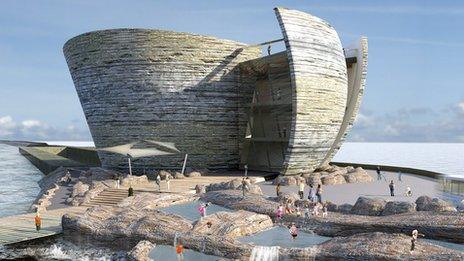Can the Welsh economy make the most of tidal lagoons?
- Published
Nick Revell of Ledwood and Roger Evans of Tidal Industry Advisory Group are looking for Welsh businesses to take advantage of the £1bn project
The way we look at the tides - and going to the seaside in parts of Wales - could be changed forever.
Something we have always taken for granted - the sea - could help us keep the lights on and generate a new industry.
The proposals for the world's first tidal energy lagoon off the Swansea coast could produce enough energy for a small city.
Other projects could follow in Cardiff, Newport and Colwyn Bay.
But can the Welsh economy cash in on this potential opportunity?
While our onshore wind industry has largely been developed by foreign investors, there seems to be a political will to make sure that does not happen with new sources of energy.

WHAT IS HAPPENING IN THE ENERGY INDUSTRY?
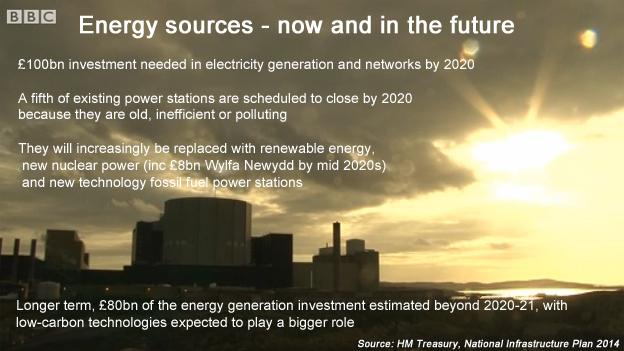
The UK is having to look at replacing its ageing power stations while looking to the future with renewable energy, such as tidal power, playing a larger part.
In its latest infrastructure plan, the UK government said its discussions with Tidal Lagoon Power Ltd will look at whether a potential project in Swansea Bay is "affordable and value for money for consumers".
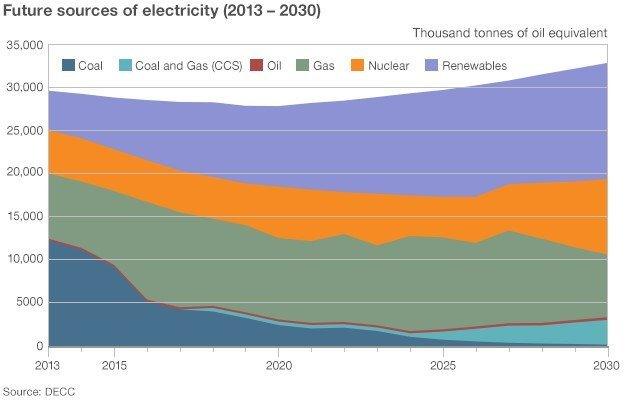
But who will pay for it?
It is reported that the Swansea lagoon project has already attracted more than £200m from two financial institutions, Prudential and Infrared; they are the cornerstone equity funders.
It will also be funded by private individuals and £400,000 raised from shares sold in the community.
The rest will be covered by borrowing from banks, with this money being repaid as customers pay their bills.
The government is set to pay for 20% of major infrastructure projects in the next few years, particularly transport, but it expects private money to pay for most of any tidal developments.

WHAT COULD TIDAL LAGOONS MEAN FOR WALES?
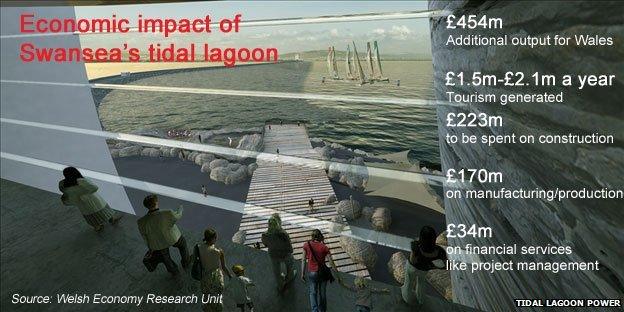
For its project off the coast of Swansea, Tidal Lagoon Power has already set a target of half of the £1bn capital expenditure staying in Wales, rising to 65% for the UK as a whole.
"The project will lay the strongest possible foundations for a brand new industry in which Britain can lead the world," says chief executive Mark Shorrock.
The Welsh Economy Research Unit says this could mean an extra £300 million being spent in Wales over the three years it would take to build and would increase the output of the Welsh economy by £173m a year.

WHAT COULD TIDAL LAGOONS MEAN FOR COMPANIES?
Craig Wheeler, a third generation of welder in his family, is hoping for work from the lagoon project
What does this mean in terms of people's livelihoods?
One of the companies which would look to bid for work is one that took a hit from the closure of the Murco oil refinery last year.
Ledwood in Pembroke Dock had 1,000 workers at its peak but now employs 200, with the workforce cut by a third as a knock-on from the refinery shutting down.
Roger Evans, chairman of the Tidal Industry Advisory Group, said Mr Shorrock is "absolutely passionate" about creating a Welsh and UK supply chain.
"We're talking potentially about 35,000 jobs. We've already identified several Welsh companies that are more than capable of partaking of that opportunity," he said.
Ready and able
General Electric in Rugby, Warwickshire, and Austrian-based Andritz Hydro are together bidding for the £300 million contract to supply 16 turbines for the Swansea lagoon.
Most of the components for the turbines will be made in the UK and south Wales businesses are hoping to attract the turbine assembly plant promised by the project.
There would also be contracts for installation, maintenance and design.
The challenge for Wales, if the project goes ahead as planned, is to have companies and employees ready and able to make the most of this new industry.
- Published2 March 2015
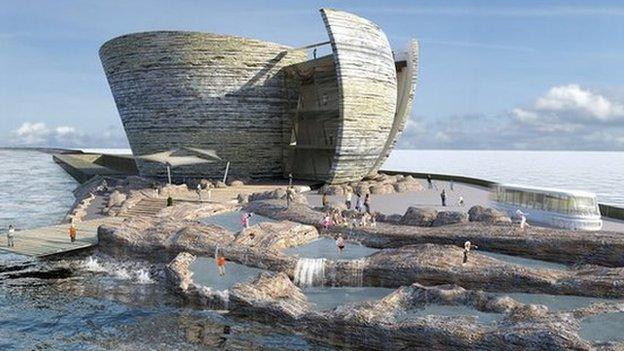
- Published10 February 2015
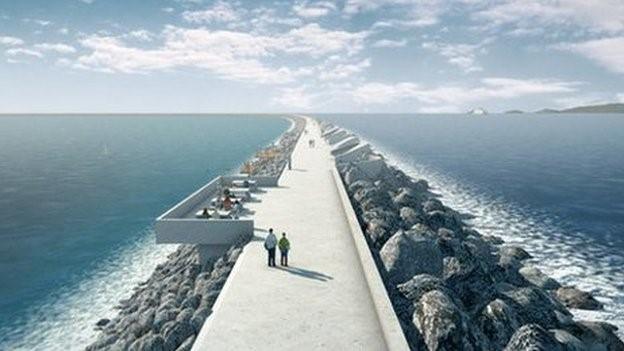
- Published7 February 2014
